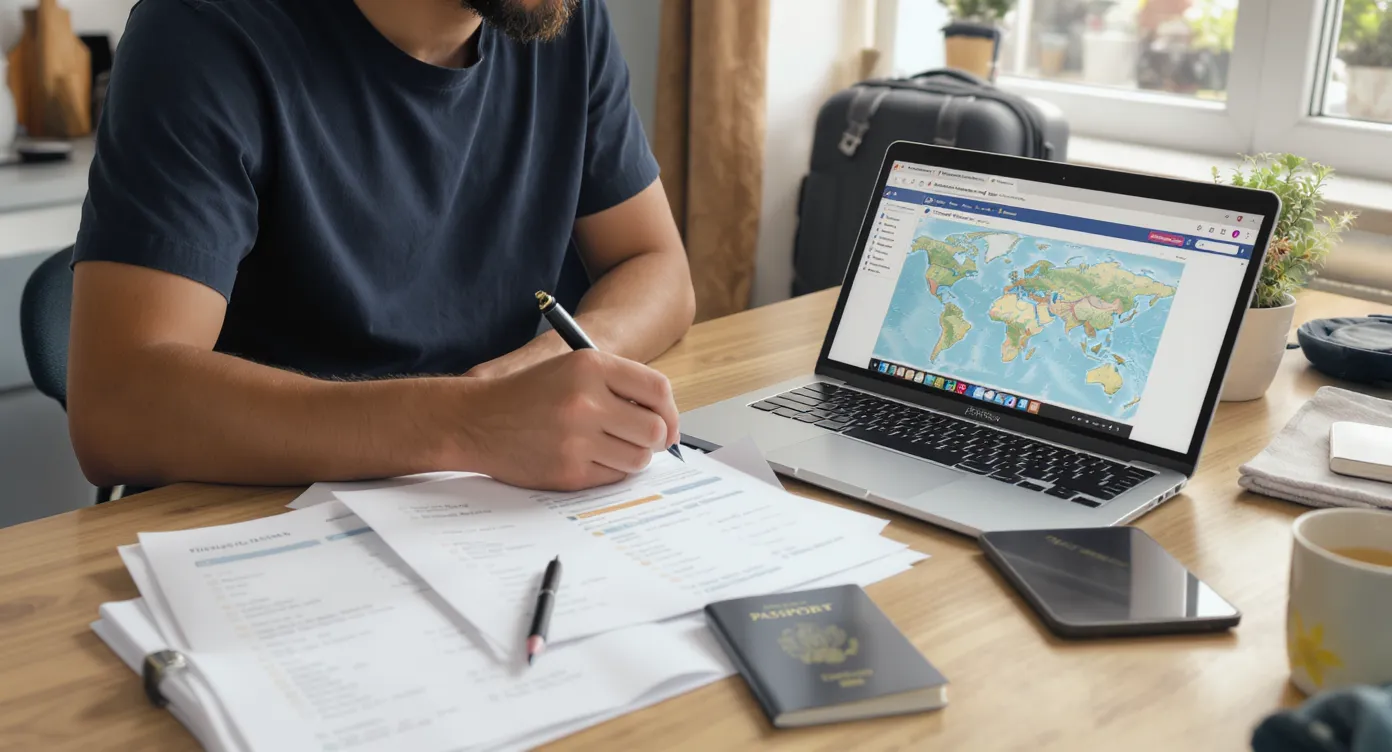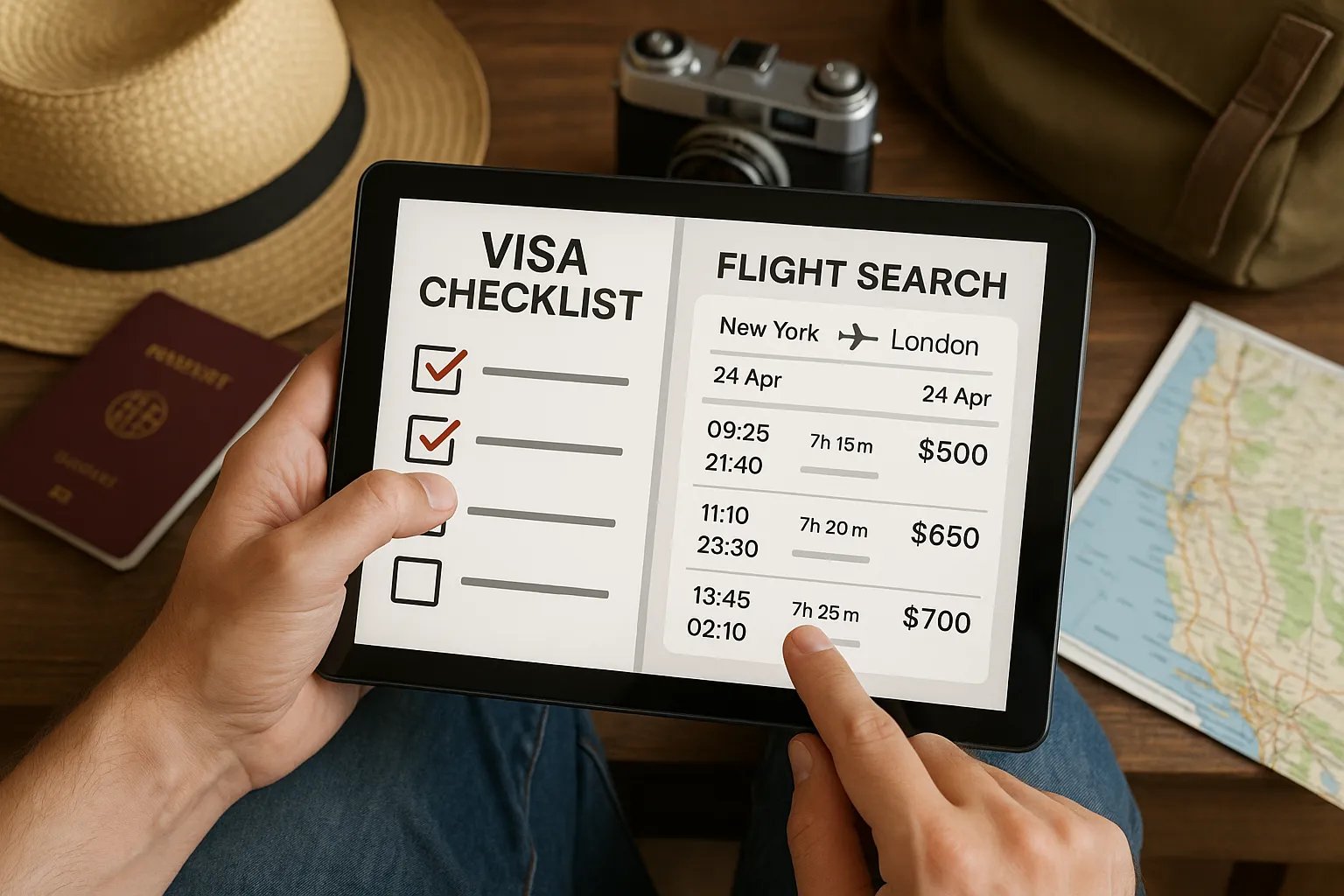My Travel Visa Planner: Pre-Booking Checklist

Modern trip planning no longer starts with picking flights, it begins with understanding whether you can legally enter your dream destination on the dates you want. Every year thousands of travelers cancel or reshuffle itineraries after discovering a critical visa rule too late. A 2024 IATA survey indicated that 30 percent of denied boardings were linked to missing or expired travel authorizations. Running a quick visa check before you tap “Book now” saves money, stress, and—most importantly—your vacation.
Introducing the “My Travel Visa Planner” Checklist
Use the following ten-point checklist as a pre-booking safety net. Work through each item in order, and you will know exactly which entry permits you need, how much they cost, and how long approval is likely to take. Feel free to bookmark or print the list for future trips.
1. Validate Your Passport Expiry
Most countries demand at least six months’ validity beyond your intended departure plus one or two blank pages. Open your passport now and note:
- Expiry date
- Number of blank visa pages
If you are inside the six-month window, renew first—many e-visa portals will reject applications with borderline validity.
2. Identify All Possible Entry Documents
Depending on nationality and purpose you may need one of the following:
- Visa on arrival (VOA) or electronic visa (e-Visa)
- Electronic Travel Authorization (eTA) or ESTA-style permit
- Traditional consular sticker visa
- Multiple permits if transiting through additional countries
The fastest way to confirm requirements is a reliable database. Your airline’s website or an API-powered tool such as SimpleVisa’s Visa Check (embedded on 400+ travel sites) returns up-to-date results in seconds.
3. Check Processing Times and Application Windows
Processing speed varies widely. India’s e-Visa often lands within 48 hours, while a Schengen sticker visa can take 15–45 days. Cross-reference official government guidance with seasonal factors such as public holidays or major events.
| Visa type | Average online processing (low season) | Apply no later than… |
|---|---|---|
| e-Visa (tourism) | 1–5 days | 2 weeks before travel |
| eTA / ESTA | Minutes–24 hours | 72 hours before travel |
| Sticker visa (short stay) | 15–30 days | 8 weeks before travel |
| Work / study visa | 1–3 months | 3–6 months before travel |
4. Confirm Purpose-of-Trip Rules
Arriving on the wrong visa can mean immediate refusal of entry. Read the fine print for permitted activities—tourism, unpaid conferences, remote work, paid employment, volunteer projects. If you plan to mix purposes, apply for the most restrictive category or split the trip.
5. Map Visa Validity Against Your Travel Dates
Visas come with both a validity window (use-by date) and a maximum length of stay. For example, a Kenya e-Visa is valid for 90 days but only allows 30 days in country. Make sure return flights, overland extensions, and cruise segments all fall inside the allowed period.
6. Budget for All Fees (and Hidden Costs)
Official visa fees can be modest—Turkey’s e-Visa for U.S. citizens is US$51—but translations, courier shipments, photos, insurance, or a required in-person appointment add up. Build a line in your trip budget for:
- Government fee
- Third-party payment surcharge
- Service provider or agency fee (if any)
- Additional documentation (medical tests, bank statements)
7. Prepare Core Documents Early
Common uploads include:
- Passport bio-page scan (300 dpi, JPG or PDF)
- Digital passport photo (per ICAO standards)
- Proof of accommodation and onward ticket
- Proof of funds (bank statement, payslip)
Instead of chasing printers at the last minute, create a secure digital folder (cloud drive or encrypted USB) with updated versions.
8. Check Transit and Multi-Stop Itineraries
A single layover can introduce extra paperwork. Flying New York–Doha–Kathmandu? U.S. travelers need no visa for a short airside connection in Qatar, but a London Heathrow transfer might require a UK Transit Visa if you exit international transit. Use route-planning tools or SimpleVisa’s API to scan each segment.
9. Factor in Dual Citizenship or Resident Permits
Dual nationals can sometimes pick the passport with the strongest “visa-free score” (the Henley Passport Index is a good benchmark). Permanent residents of Schengen countries may travel visa-free within the bloc even if their citizenship normally requires a visa. Always carry proof of residency alongside the passport used to apply.
10. Decide Between DIY, Agency, or Automated Platform
Complex visas—study, work, multi-entry business—may justify a specialist agency. For straightforward e-Visas or ETAs, self-service portals or integrated booking-flow widgets are quicker and cheaper. Many airlines and online travel agencies now offer a SimpleVisa white-label checkout: you select flights, receive a personal visa checklist, and complete the application without leaving the site.

Pro-Tips to Stay Ahead
- Set calendar reminders for application opening dates—especially for high-demand visas such as K-ETA or the upcoming ETIAS.
- Apply from a secure network or VPN and enable two-factor authentication where offered; e-visa scams remain a real threat (see our guide on e-visa fraud here).
- Track policy changes. Governments announce fee hikes or documentation tweaks months in advance. Our article on 7 trends in electronic visa adoption is a great quarterly digest.
Frequently Asked Questions
Do I need to book flights before applying for a visa? Some countries request a provisional itinerary; others only ask after approval. Check the official checklist or use SimpleVisa’s requirement engine.
What if my passport renewal overlaps with visa processing? Renew first. Visas are typically linked to a specific passport number and cannot be transferred once issued without additional paperwork.
How early can I apply for an e-Visa? It varies. India opens its portal 120 days out, while Australia’s ETA can be requested almost a year ahead. Follow the “Apply no later than…” column above for safe buffers.
Ready to Book With Confidence?
A five-minute visa health check today can spare you expensive itinerary changes tomorrow. If you want real-time, automated advice at checkout—or you run a travel website that could benefit your customers—explore how SimpleVisa’s API and no-code widgets remove border-crossing guesswork and boost ancillary revenue. Visit simplevisa.com to learn more or request a live demo.